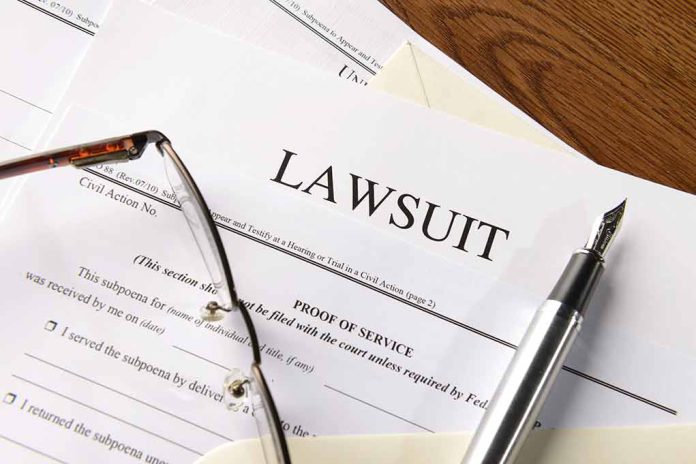
UnitedHealthcare launches a defamation lawsuit against The Guardian, claiming the British newspaper deliberately exploited the tragic murder of their CEO to publish false allegations about elderly care kickbacks and DNR coercion in nursing homes.
Key Takeaways
- UnitedHealthcare is suing The Guardian for defamation over claims it incentivized nursing homes to reduce hospitalizations of elderly patients at the expense of proper care.
- The insurance giant alleges The Guardian knowingly published false information and opportunistically capitalized on media interest following the murder of UnitedHealthcare’s CEO Brian Thompson.
- The Guardian stands by its reporting, citing thousands of documents and interviews with over 20 current and former UnitedHealth employees.
- UnitedHealthcare claims The Guardian misrepresented their Institutional Special Needs Program, which they maintain improves health outcomes for seniors.
- The Department of Justice previously declined to intervene in a whistleblower lawsuit containing similar allegations, which was dropped in 2023.
Insurance Giant Fights Back Against Serious Allegations
UnitedHealthcare has launched a fierce legal counterattack against The Guardian newspaper, filing a defamation lawsuit over a May 21 article that accused the healthcare provider of implementing unethical cost-cutting measures that potentially endangered nursing home residents. The Guardian’s report alleged that UnitedHealthcare secretly paid bonuses to nursing homes to reduce hospital transfers of elderly patients, illegally obtained confidential patient data, and pressured staff to convince vulnerable patients to sign Do Not Resuscitate (DNR) orders – all as part of an alleged scheme to slash medical expenditures.
In its lawsuit, UnitedHealthcare strongly refutes these claims, arguing that The Guardian deliberately published false information while exploiting public interest in the recent murder of the company’s CEO, Brian Thompson. The legal filing minces no words about the timing and motivations behind the article, stating: “The Guardian knew these accusations were false, but published them anyway, brazenly trying to capitalize on the tragic and shocking assassination of UnitedHealthcare’s then-CEO, Brian Thompson,” the complaint says,” UnitedHealthcare. complaint.
Disputed Evidence and Whistleblower Claims
At the heart of the controversy is UnitedHealthcare’s Institutional Special Needs Program, which the company insists is designed to improve health outcomes for seniors through on-site clinical care and enhanced coordination among caregivers. The Guardian’s reporting, however, painted a drastically different picture, suggesting the program functioned as a mechanism to boost profits by minimizing necessary hospital transfers. The article cited a whistleblower lawsuit filed by a former UnitedHealthcare nurse practitioner who alleged systematic denial of care to reduce costs.
“Scores of elderly patients never received the care that they needed, all because UnitedHealthcare skimped on care to cut costs. UnitedHealthcare is compelling medical professionals to comply with its financially driven playbook at the expense of patient safety, forcing providers to violate their ethical obligations. I’d like to see them held accountable for putting profits over patients,” said Dr. Maxwell Ollivant.
Significantly, the Department of Justice declined to intervene in this whistleblower case, and it was subsequently dropped in 2023 – a fact that UnitedHealthcare emphasizes in its defense. The company further argues that The Guardian misrepresented their program and took email screenshots out of context to support its narrative, ignoring substantial evidence that the program actually benefits seniors rather than harms them.
Media Battle Lines Drawn
The Guardian remains steadfast in its reporting, refusing to retract the article and defending its journalistic integrity. The newspaper claims its investigation was based on extensive documentation and numerous interviews with UnitedHealth employees. “The Guardian stands by its deeply-sourced, independent reporting, which is based on thousands of corporate and patient records, publicly filed lawsuits, declarations submitted to federal and state agencies, and interviews with more than 20 current and former UnitedHealth employees – as well as statements and information provided by UnitedHealth itself over several weeks,” said a representative from The Guardian.
UnitedHealthcare has hired Clare Locke, a law firm known for aggressively pursuing defamation cases against media outlets. The company has publicly denounced The Guardian’s reporting as fundamentally flawed and harmful to its reputation. “The Guardian knowingly published false and misleading claims about our Institutional Special Needs Program, forcing us to take action to protect the clinician-patient relationship that is crucial for delivering high-quality care. The Guardian refused to engage with the truth and chose instead to print its predetermined narrative,” stated UnitedHealthcare.
Financial Impact and Broader Context
The publication of The Guardian’s article initially contributed to a decline in UnitedHealth’s share prices, adding to the company’s challenges following the murder of its CEO. However, the stock rallied by 12% over the subsequent five days, suggesting that investors may have discounted the allegations or found UnitedHealthcare’s rebuttal convincing. The company faces other issues beyond this media battle, including ongoing Department of Justice investigations for potential Medicare fraud and a recent lawsuit from investors claiming the company failed to adjust its earnings outlook following Thompson’s murder.
“A recent article published by The Guardian presents a narrative built largely on anecdotes rather than facts. It is unfortunate that the article misrepresents a program that, in reality, improves health outcomes for seniors through on-site clinical care, personalized treatment plans, and enhanced coordination among caregivers. We stand firmly behind the integrity of our programs, which consistently receive high satisfaction ratings from our members,” stated UnitedHealthcare.
This legal battle between a major American healthcare corporation and a prominent British newspaper highlights the increasingly contentious relationship between big business and media. With both sides claiming to have facts and documentation supporting their positions, the courts will ultimately determine whether The Guardian’s reporting meets the legal threshold for defamation or constitutes protected journalism in the public interest.



